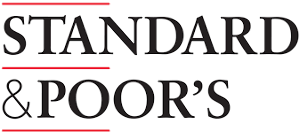Banks and non-banks given clean bill of health
New Zealand's biggest banks and non-bank lenders remain in a robust position despite the pandemic, according to rating agency Standard & Poor's.
Thursday, April 15th 2021, 1:09PM  1 Comment
1 Comment

S&P's annual report on the NZ banking system – which includes a review of non-banks Avanti, Liberty and Asset Finance – views the lenders as "stable".
The agency said: "In our view, the economic risk trend for banks operating in New Zealand is now stable. The country's economy is recovering strongly after the Covid-19 pandemic."
S&P noted "limited losses to date" despite the pandemic, and predicted a steady recovery as the economic picture improves.
"In our base case, we now forecast that the New Zealand banks' credit losses in the next two years will remain at about 0.30% of gross loans and advances, broadly in line with our expected long-term average for New Zealand banks," the agency said.
According to the report, the Government's sweeping housing reforms will lead to an "orderly slowdown" of property prices in the years to come.
However, the ratings provider said downside risks would remain, "particularly if the policy support measures are unsuccessful".
S&P's team of forecasters say NZ lenders are well-placed to absorb potential credit losses and retain "headroom in their earnings".
The company has left credit ratings for ANZ, ASB, BNZ, Westpac, Rabobank and Kiwibank unchanged.
Ratings for Avanti, Liberty and Asset Finance were also unchanged, according to the report.
The report also predicted a possible shake-up of the NZ banking landscape due to the Reserve Bank's new capital requirements.
The extra requirements could force other Aussie banks to dispose of their Kiwi subsidiaries, following the lead of Westpac, which has put its NZ business under a strategic review, S&P said.
"Another possible scenario is that the Australian owners decide to allocate less capital to their New Zealand subsidiaries or look to divest their New Zealand operations because of the higher proposed capital requirements, or for other reasons."
| « Economists react as OCR kept on hold | Vincent Capital adds a South Island BDM » |
Special Offers
Comments from our readers
Sign In to add your comment
| Printable version | Email to a friend |




S and P said this in 2007 and look what happened.